How to Choose Cloud Accounting Software for Pro-Practice
In this article, we’ll explain how you can go about choosing the right cloud accounting software for your accounting firm.
Discover the 8 best AI accounting software to automate tasks, increase forecast accuracy, and enhance financial security.

Discover the 8 best AI accounting software to automate tasks, increase forecast accuracy, and enhance financial security.
In this article
Are you still managing your accounting firm manually?
Last year, 98% of accountants used AI in their practice and the results could shock you.
If you’re not sure if it could help you, check out the best 8 AI accounting software and see how they could help you.
AI accounting is essentially letting AI take charge of some accounting processes such as data entry, invoice processing, financial forecasting, fraud detection, and compliance monitoring, for example.
AI accounting software involves machine learning, predictive analysis, and automation to make these processes quicker and more accurate.
By using an AI accounting system, you can easily analyze a large amount of financial data, identify patterns or any mistakes, that can offer deep insights to help you make informed decisions about your finances (or your clients finances).
AI-powered accounting software comes out as one of the best tools you can have as an accountant throughout practice.
AI bookkeeping software can turn such raw financial data into insightful reports. In addition to effectively using complex algorithms, AI finds patterns and trends that might otherwise elude human analysis.
This has been particularly useful in finance, especially where it is necessary to make correct forecasts for strategic decision-making and planning.
AI accounting software uses AI to automate routine tasks and to take care of financial operations, and to offer deep insights into accounting.
This software offers many features that aim to reduce manual effort and human error, while increasing analytical capabilities.
Some features include:
Automated data entry
Predictive analytics
Fraud detection
Improved reports
Workflow automation
Document management
Accurate and relevant insights and alerts
There are many different AI accounting tools out there, however, choosing the right tool for your accounting firm is obviously a must.
There are 3 crucial steps to take before you make any decisions.
When selecting an AI-powered accounting tool for your CPA accounting firm, consider the following factors:
The size and complexity of your business will define if you need a more complex and scalable choice or if a basic one will suffice.
Small to medium firms can benefit from QuickBooks Online Advanced because of its ease of use and high scalability.
It offers tools such as custom reporting, batch invoicing, workflow automation, and enhanced user permissions.
For medium to large firms, a good option could be Sage Intacct. It is acceptable for firms with complex needs and complicated financial processes.
However, for any size firm (small to large) you cannot go wrong with Eleven.
Although we will get into more details shortly, Eleven is best suited for all sized firms as it combines advanced automation with a highly scalable platforms. It offers intelligent workflow automation and predictive insights tailored to both startups and large enterprises.
The goal of your AI accounting software is to provide the necessary tools to make your work much more accurate.
Your needs could be more specific to cash flow forecasting, reporting, receiving detailed analytics, financial management, or multi-currency accounting.
Unless you are still in the planning phase of your business, chances are you already have a tool stack, big or large. You could have a Payroll system, Practice Management, aDMS, billing tools, or CRM, anmong others.
When choosing your AI accounting software, it is crucial that you check how it would integrate with all of the tools in your current stack so it won’t affect your workflow negatively and you can protect your efficiency.
Choosing the right AI bookkeeping software could multiply your firm's efficiency and accuracy. Here, we present our broad view of the top 3 AI accounting tools so you realize their special features and benefits that would help in your decisions.
Comparison of Key Features
Let's compare QuickBooks Online Advanced, Eleven, and Sage Intacct based on their key features. Each tool offers unique capabilities that cater to different needs in the accounting industry.
Eleven is a powerful AI cloud accounting software fit for firms any size packed with useful features.
Although it offers many tools, Eleven stands out because it offers multi-currency transactions, which makes it a perfect choice for firms and accountants with international clients.
Eleven includes Luca-AI, an AI assistant, that performs data extraction, entry categorisation, and generates the accounting transactions to be reviewed by the reporting together with an accountant. The software emphasizes ethical AI practices, ensuring transparency and data privacy.
The platform is designed to be user-friendly while offering deep customization options, making it accessible for firms with limited technical resources and powerful enough for complex financial environments.
Its continuous learning capabilities, seamless integration with other systems, and responsive support make it a comprehensive solution that grows with the firm, enhancing both operational efficiency and strategic decision-making.
Eleven offers an analytical accounting tool that integrates with your general ledger. This allows you to track costs, revenue, and profitability.
Multi-dimensional analysis allows you to break down financial data by departments, project, products, or cost centres so you can know exactly where you allocate your resources and their performance.
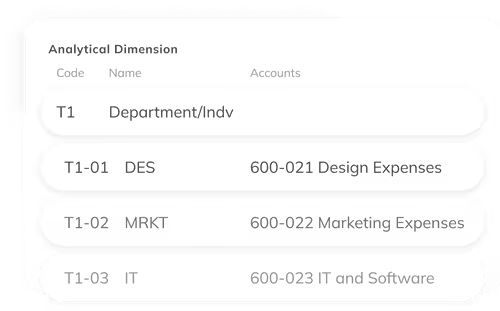
More features include:
To learn more about Eleven, be sure to check out our channel to find more explanatory videos.
✅ Pros
❌ Cons
Users’ ratings ⭐⭐⭐⭐⭐
Capterra 4.9/5
Users have mentioned a seamless and simple transition from QuickBooks to Eleven. This client has been able to save time filing financial documents and importing transactions from Excel.
The transition from QuickBooks was really seamless and took less than an hour to move all of our customers and journal entries for each company.
I can manage the books for all three subsidiaries in one system including the Europe-based company which posts a lot of multi-currency transactions.
The automated data entry from receipts and invoices is also saving us time filing our documents and entering new invoices and expenses. All we have to do now is import the invoice file and it populates the invoice fields and creates a journal entry on its own. And collaboration with our accountant is right there in the system. Also, we can still import transactions from Excel when we need to. It seems to run very fast when you post large batches in a journal.
Overall, the most celebrated feature Eleven offers is multi-currency, and a better understanding os customer behavior.
Eleven assisted us in analyzing consumer behavior, industry trends, and the actions of our rivals, which improved our understanding and allowed us to develop more effective marketing strategies.
Because of the customized campaigns we send to our clients, we saw an increase in engagement and higher-quality prospects.
We can integrate the platform with other solutions to optimize our operations. Eleven helped us automate our email campaigns, social media management, and content scheduling. Time can now be better spent on more strategic tasks.
QuickBooks Online Advanced is a cloud-based accounting software which is best suited for small to medium businesses.
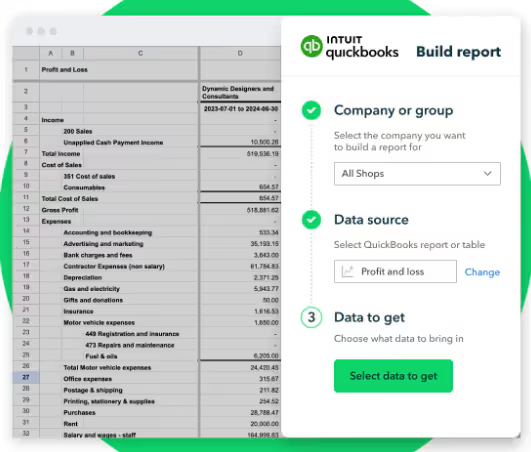
QuickBooks is user-friendly and offers good features such as automatic transaction categorization, forecast of cash flow, AI-powered reporting and business tool integrations.
However, some users experience issues with invoice matching and limitations in reporting, while others find the customer support lacking.
QuickBooks integrates with excel so you can easily send your spreadsheets.
✅ Pros
❌ Cons
User’ ratings ⭐⭐⭐⭐
Capterra 4.4/5
Users have mentioned they enjoy integrations with CRMs, however, the tool can be difficult to set up correctly.
Another issue with this tool was its pricing, as it scales up quickly.
Overall, I wish it could have worked better because it would be easier to use QuickBooks for everything than to integrate other tools into my business but it did not. I, also, found that the rising fees on every element were adding up to more than it was worth. I could not reach customer support ever to straighten out problems so ultimately had to make a few changes.
Pros
I loved using QuickBooks product suite for the first year or two and still find that it's a great comprehensive package for small businesses.
Cons
When using the full QuickBooks product suite there are often issues. For example invoicing double creating bookkeeping entries. I still use some QuickBooks products but do not use all of them any longer.
Sage Intacct is a financial management and accounting software designed for mid-sized and large firms.
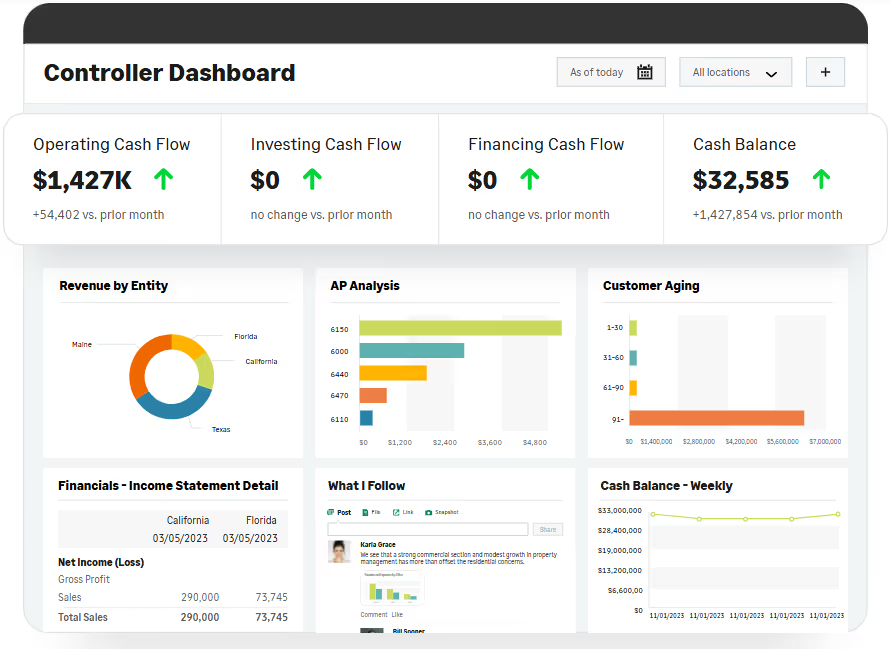
It is a very scalable tool that allows customization so you can adapt the tool to your needs.
Sage Intacct provides real-time dashboards, automated workflows, and strong integration with other business systems such as Salesforce.
The software is suited for firms that require visibility into financial performance, audit readiness, and regulatory compliance.
Some of its features include multi-entity and global consolidations, revenue recognition, project accounting, and robust financial reporting, and automation of accounting processes.
✅ Pros
❌ Cons
Users’ ratings ⭐⭐⭐⭐
Capterra 4.3/5
Many users celebrate Sage Intacct’s detailed and user-friendly reporting and make it stand out as its best features.
However, the main issues users have with this tool seem to be the learning curve and an unresposive customer support team.
In my personal opinion, Sage Intacct is a good software. The platform not only provides a reliable accounting solution but also boasts strong abilities in automation and reporting
Pros
I am fond of the fact that Sage Intacct is very good at financial reporting and automated workflows which are the factors to the success of accounting and Bank Reconciliation
Cons
The interface is not always intuitive and it triggers a lot of removed menu entries, and navigating through some of the features could be a hurdle for some people. Furthermore, some of the customizations also require technical knowledge as well
Netgain is an accounting software that also delivers IT and management services and cybersecurity.
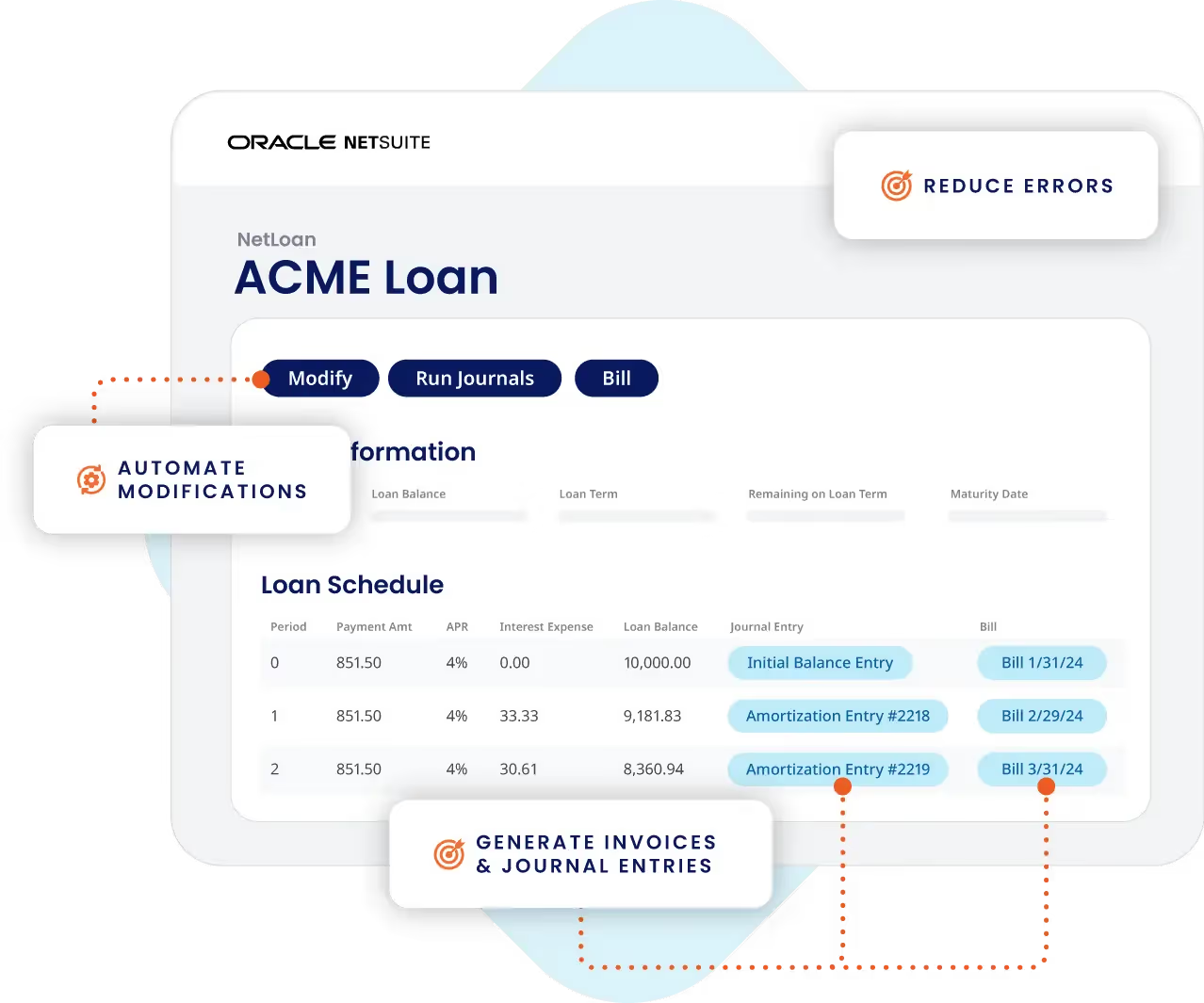
Although it isn’t an exlusive or traditional accounting software, Netgain can host accounting applications, client data, and business workflows.
Key features include virtual desktops, data encryption, 24/7 monitoring, multi-factor authentication, and compliance support for regulations such as SOC 2, HIPAA, and GLBA.
It is best suited for mid-sized to large accounting firms that handle sensitive financial and healthcare data.
Netgain offers different products within the NetSuite with loan management, bank reconciliations, month-end closing, leased assets, and intercompany entries.
✅ Pros
❌ Cons
User’s ratings ⭐⭐⭐⭐
Capterra 4.2/5
As Netgain is natively integrated with the entire NetSuite, it is easy to have every application in one place, therefore reducing your tools stack.
On the other hand, users have reported the the deployment and implementation of the tool can take up to several months.
Overall experience is a positive experience. Customer support has been great, even when we hit some bump in the road.
Pros
The implementation was pretty straight forward, be prepared to do a alot of data entry and lease contract review. we spent roughly 50 hours gathering all the information alone. The product itself is super easy to use and update items. It is a bit challenging to correct mistakes, so make sure you are 100% sure about the information before going live.The features we really find useful are the reconciliations reports, clearing accounts, automatic amortization, go live and reclass entries and the renewal reminders.
Cons
integration was not difficult at lot, this actually helped us improve out a process by streamlining some emails. The features that are lacking are automated reports and recons that could be sent straight to our email and the addons such as non-lease payment (if your are willing pay for it the free version lacks this feature)
Botkeeper is an AI-powered bookkeeping platform that offers machine learning to take care of the more tedious tasks involved in bookkeeping.
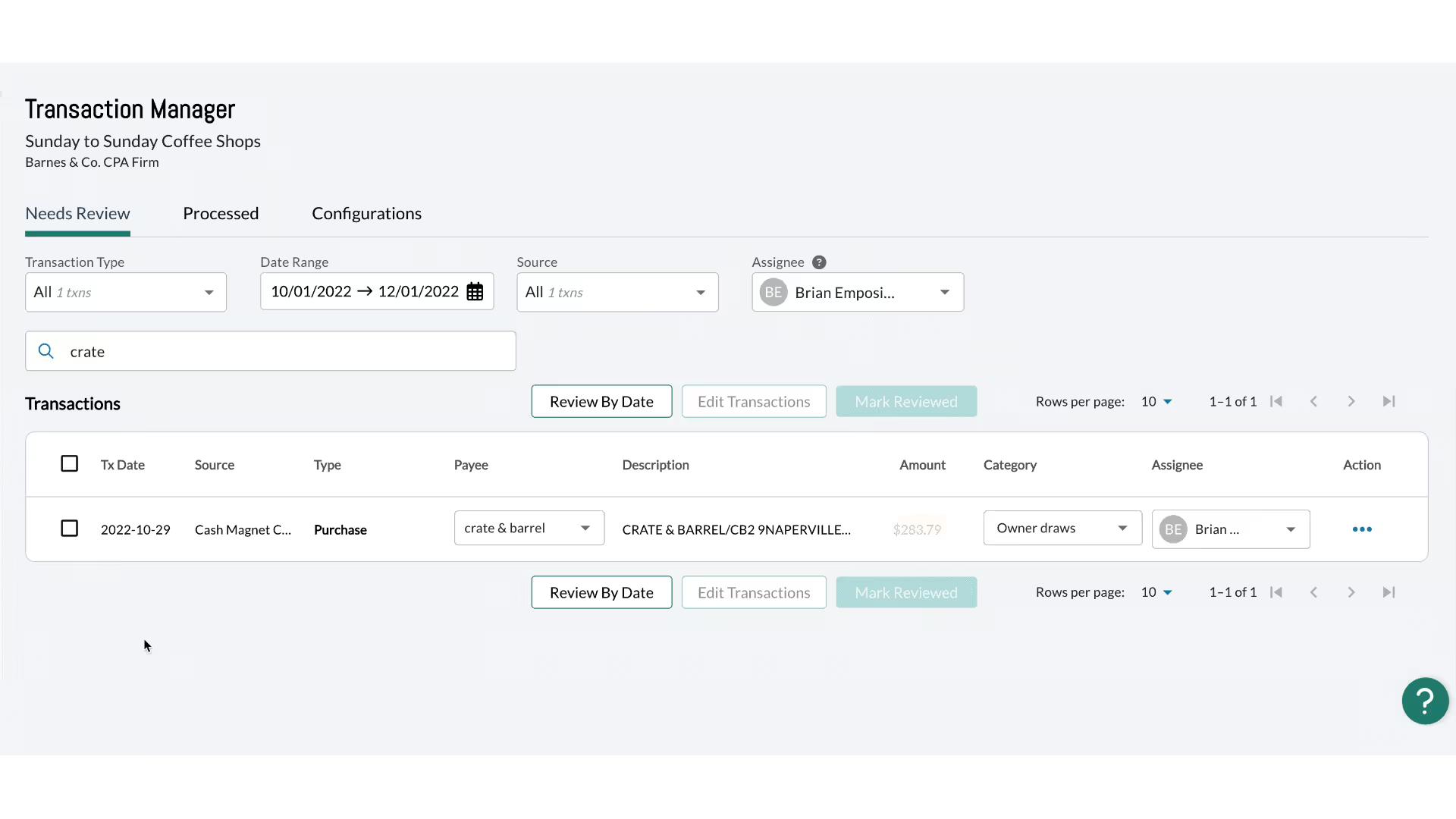
Some features include:
Botkeeper offers a hybrid model, where AI takes care of data entry, but leaves reviewing of output to accountants.
It suits small to mid-sized firms that want to automate some time-consuming processes while still offering a human and accurate service.
✅ Pros
❌ Cons
User’s ratings ⭐⭐⭐⭐
Capterra 4.4/5
Users use Botkeeper to automate repetitive tasks and save time in bookkeeping, allowing them to expand their client base.
The only issue is that issues have to be corrected manually, therefore they need to closely review all automated work.
What do you like best about Botkeeper?
I like the automatic reconciliation of bank statement and the automated coding of the transactions with in the tool. It's reduce my time to complete the bookkeeping for the client and I can prepare financial statements within the TAT. Previously I have to do reconciliation in excel which takes more time as compare to now.
What do you dislike about Botkeeper?
I can not delete the particular transaction of bank statement which I mistakenly post twice. I have to delete whole batch to correct the bank statement balance.
Vic.ai is an accounting platform powered by artificial intelligence to optimize and speed up accounts payable processes.
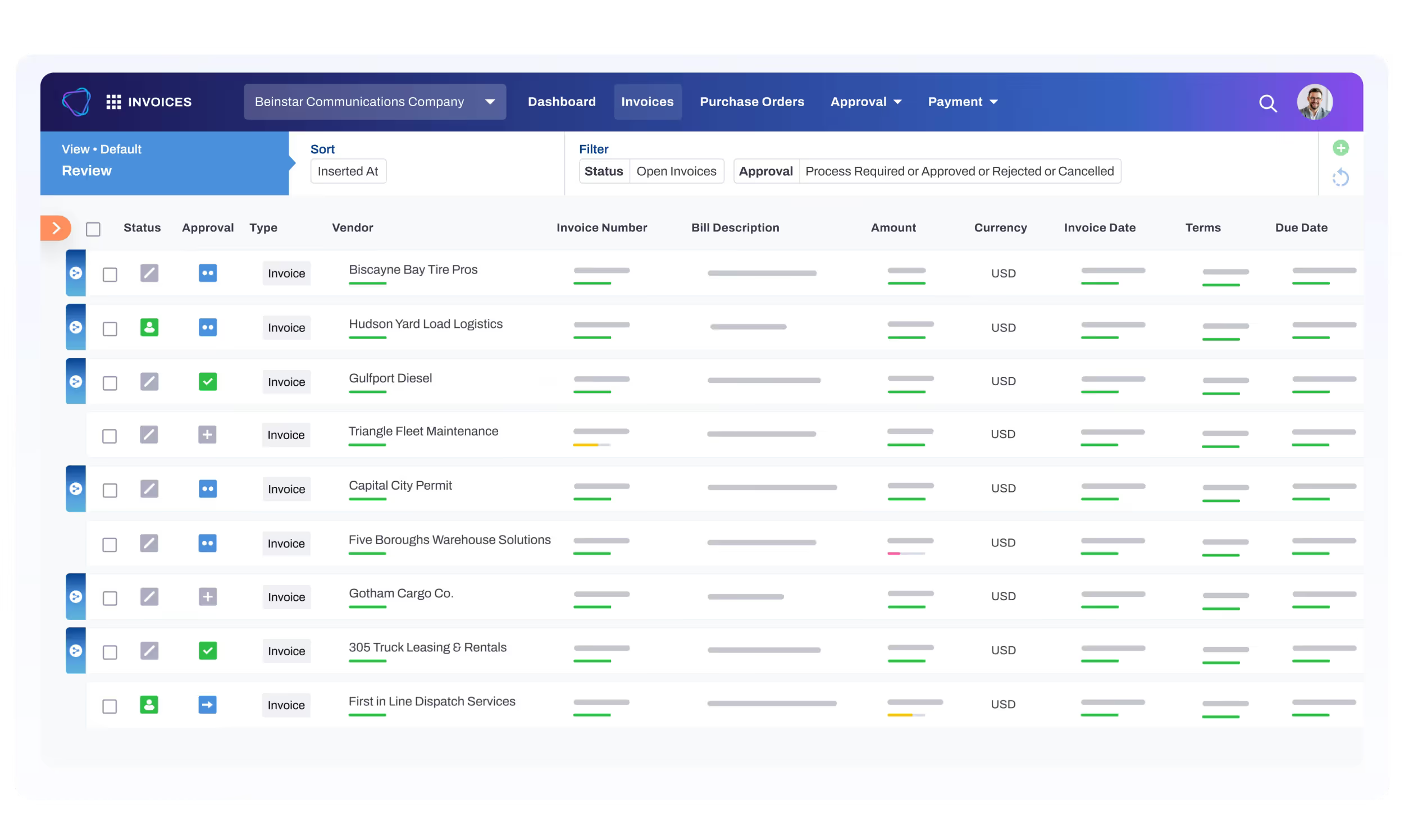
Vic.ai uses AI to analyze historical data to improve invoice processing accuracy without manual input.
Among its features we can find AI-driven invoice ingestion, approval routing, anomaly detection, and real-time insights into AP performance.
Vic.ai is able to achieve "autonomous accounting", where AI automates and performs accounting tasks.
Vic.ai is ideal for mid-sized to large enterprises and accounting firms that process large transaction volumes.
✅ Pros
❌ Cons
User’s ratings ⭐⭐⭐⭐⭐
G2 4.8/5
Users particularly like how Vic.ai parses their invoices and extracts information.
Although some users have reported that they tend to miss on notifications.
What do you like best about Vic.ai?
Vic AI helps our team streamline the payment process for invoices and other payment requests. It helps us organize our team and operations to track spending!
What do you dislike about Vic.ai?
I wish it were easier to pull reports related to what each employee has uploaded for payment.
Ratings ⭐⭐⭐⭐
Capterra 4.4/5
Overview
Xero is a cloud-based accounting platform with an intuitive interface and a wide variety of integrations, including Zoho CRM, PayPal, Equals Money, and HubSpot Marketing Hub.

Xero centralizes workflows such as bank reconciliation, invoicing, expense tracking, payroll, custom reporting, and project accounting.
It uses OCR capture to extract data from receipts and invoices to automatically categorize and match expenses and bank transactions.
Other features include:
Xero is best suited for small and medium accounting firms, however, it is not scalable for larger enterprises.
Xero offers a clean, powerful, and scalable solution. It combines automated bookkeeping, multi-user collaboration, and integration flexibility.
While its support, customization, and performance under heavy usage may lag behind larger platforms, its still a good choice for growing firms.
✅ Pros
❌ Cons
Users’ ratings ⭐⭐⭐⭐⭐
Capterra 4.4/5
Users particularly enjoy its ease of use, as opposed to many other accounting tools, its setup and interface is quite user-friendly.
Although it has solid reporting and good integrations, it’s improtant to remember that it is not a tool suited for larger firms or businesses.
Sign up was easy. Migration from old CFM worked well with templates. Onboarding call was very helpful to catch a few mistakes.
Pros
Easy to use. Interfaces with Gusto and Harvest, which is perfect. Intuitive interface and easy to learn.
Cons
Fits the needs of my small business perfectly at a good price. More interfacing with other softwares would be nice but I'm sure that will come.
Trullion is Trullion an AI-driven accounting platform that targets specialized financial processes like lease accounting, revenue recognition, and audit automation.
It uses OCR, computer vision, and GenAI to transform unstructured documents into structured data.
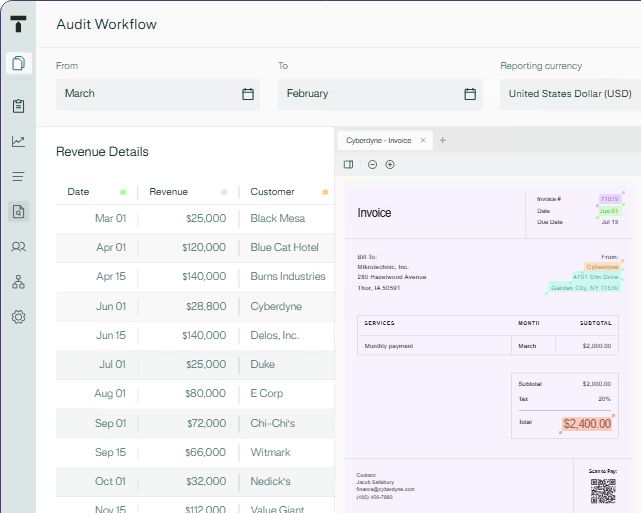
Trullion is a scalable choice and therefore is suited for mid-sized to large organizations that need to handle complex accounting documents.
Trullion has an intuitive platform, good auditability, and GenAI support, it helps accounting teams shift from manual operation to strategic oversight.
This tool allows running audits smoothly as it provides full traceability from source documents to reports, plus multi-user collaboration features.
Some of Trullion’s best features include:
✅ Pros
❌ Cons
Users’ ratings ⭐⭐⭐⭐⭐
Capterra 4.8/5
Users have mentioned that Trullion’s implementation is quick and simple. Additionally, most users say the tool has helped them with lease accounting especially.
The downside is that is doesn’t track down prorated lease payments.
What do you like best about Trullion?
Trullion allows for a quick implementation and our clients are typically looking for a quick and painless implementation and maintenance. The UI is clean and easy for any new user to navigate. Also, Trullion has always had great customer support and responds to tickets/questions quickly
What do you dislike about Trullion?
Trullion has unnessecary journal entry "baggage" for the revaluation of the liability and there is no current way to turn this off and produce a summarized entry instead. Also, there could be improvement to some of the reporting features and ability to visualize data differently than the set reports.
Having good AI tools in the accounting practice is important to CPA accounting firms.
Accounting tools in the firm are intended to automate routine tasks, improve accuracy, and offer deeper insights.
When choosing your accounting tool, there are 4 factors you need to consider:
🔲 Choose a tools that fits your firm’s size
🔲 Define your bottlenecks
🔲 Make sure your tool solves those bottlenecks
🔲 Find a scalable option
And lastly… Try Eleven out today and increase your efficiency.